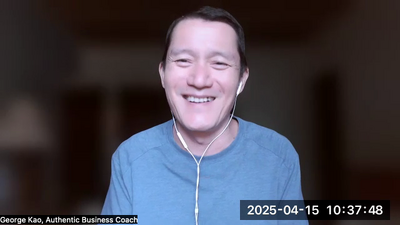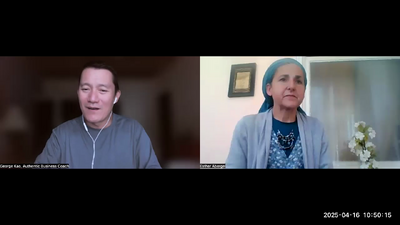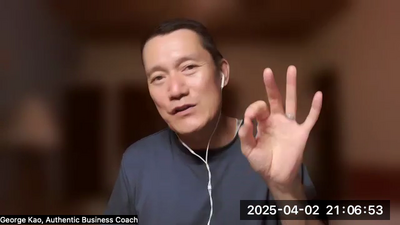- Orientation
- BizPlan
- BizPlan25
- Authentic Speaking
- Authentic Market Discovery
- Create Aligned Offers
- Joyful Productivity (Course)
- ✨ Authentic Outreach (AO)
- Joyful Pro
- Blog-to-Book
- 🚀 Course Creators
- 🖼️ Your Signature Framework
- 🙋 Effortless Yes
- 🌈 Energy Signature
- Meta Ads (FB / IG Advertising)
- 📱 Instagram Mastery
- 🎤️ Interview Mastery
- Launch Your Group Program
- Netcaring
- 🦸🏽✍🏽 Soulful Content (OGI)
- Substack Course
- "What do you do?"
- 🎬 YouTube Mastery

Sedan 2019 driver vi företaget Crispy Concept inom hälsa och ledarskap. Vi har skrivit boken Från Riskfokus till Friskfokus som handlar om att upptäcka nya sätt att bredda och bygga din hälsa med friskfaktorer som metod. Företaget och boken har sitt ursprung i våra livserfarenheter från 2013 och framåt och bygger på den personliga berättelsen om hur två trebarnsföräldrar och karriärister tog sig ur en alltför intensiv period mitt i livet. Vi mådde inte bra och något behövde förändras innan det var för sent.
Vår samlade yrkesmässiga erfarenhet av HR, flygledning och förändringsledarskap i kombination med fördjupning i forskning och litteratur lade grunden till vårt entreprenörskap. Med egenutvecklade metoder och verktyg har vi hjälpt både privatpersoner och företag att upptäcka sina friskfaktorer, hitta fler möjligheter och se olika perspektiv i syfte att främja en god hälsa. En hälsa som är mer än bara frånvaron av symptom eller sjukdom.
Statistiken visar att många hamnar i en sits där de inte mår bra, inte riktigt klarar av eller reder ut. Där det uppstår ett glapp mellan den livssituation de befinner sig i och den där vi vill vara. De kanske känner att de inte mår så bra som de borde men inte riktigt vill erkänna det för sig själva. Vi brinner för att vända utvecklingen av psykosocial ohälsa, negativ stress och utmattning i samhället och hjälpa dig att må bra.
Vår övertygelse är att alla människor kan börja bygga en mer hållbar tillvaro med små friska justeringar som kan ge dem den hälsa och energi som de mår bra av, där de känner sig både FRIa och FRIska.
Sedan 2019 driver vi företaget Crispy Concept inom hälsa och ledarskap. Vi har skrivit boken Från Riskfokus till Friskfokus som handlar om att upptäcka nya sätt att bredda och bygga din hälsa med friskfaktorer som metod. Företaget och boken har sitt ursprung i våra livserfarenheter från 2013 och fra…
 5:02
5:02
What if only a few people show up?
After setting up your registration and tracking systems in the last couple of lessons, a common thought might creep in: "What if hardly anyone registers? What if only one or two people actually show up live?" This is a normal feeling... but allow me to offer a perspective shift that might transform this anxiety into an opportunity. Every Session is Valuable Practice: Whether one person shows up to your live FTA webinar, or ten, or even zero initially, consider each time you prepare and offer your teaching as incredibly valuable: You are honing your craft: Every time you structure your thoughts, practice your delivery, and manage the technology, you get better. You are testing your material: You gain insights into what resonates, what's clear, and what might need adjustment, even just through the act of preparing and speaking it aloud. You are practicing presence: You build comfort and confidence in sharing your energy and knowledge in an online format. Trust the Process: Growth Happens Over Time Especially when you're starting out, or testing a new topic, attendance might be small. Please know that this is normal. If you keep launching FTAs consistently and continue practicing market discovery to choose topics your audience genuinely wants (as we covered in Modules 2 & 3), your attendance will likely grow over time. The key is persistence and relevance. An Inspiring Story of Dedication: To put this in perspective, I want to share a deeply moving story about service and dedication beyond numbers. It's a reflection by the spiritual teacher Adyashanti about his first teacher, Arvis Joen Justi: "When she first started to offer teachings at her house, she would sit down after preparing everything, but nobody would show up. Still she wrote a talk, set up her meditation room, and opened her house even single week, week after week. Sometimes, out of compassion, her husband would sit with her, but mostly she sat alone. She continued to do this for an entire year without a single person coming. That is dedication! What service to the dharma, the Buddhist teaching - not being in service to how many people appear, to numbers or normal measures of success, but to doing what she was called to do. After a year, one person came, and for the next year it was Arvis and that one person. As word slowly spread, more people arrived, until sometimes she would have fifteen or twenty people. Her dedication was a great teaching for me. It touched my heart because it spoke to what service is: the willingness to put ourselves in a position of giving, to be an embodiment of what we are dedicated to, and to put our life, time, attention and energy into the most important things. Even when Arvis was sitting in her living room alone, she was in service to all the people who might show up in the future. Many years later, I ended up being one of those people." (You can find this reflection shared on my Facebook profile here: https://www.facebook.com/GeorgeKao/posts/10112514950126433) Your Service Matters, Regardless of Numbers Think of your FTA webinar, even if only one person attends live, as an act of service – service to your dedication, service to honing your message, and service to all the people who might benefit from it in the future, whether through the recording or future iterations. Action Step / Reflection: Take a moment to reflect on the above story and the idea of teaching as practice and service. Comment below sharing one thought about how this perspective might help you approach your upcoming FTA webinar, especially concerning your feelings about attendance numbers 🙏🏼
 5:02
5:02
How to price courses/workshops for organizations?
This is a free preview -- to access comments, enroll or log into this course 🙏🏼
- Summarize this thread
- Copy link
Yeah exactly my point, more difficult to sell to teams and larger organizations. Some of the leaders I've interviewed have looked at my high ticket offer and thought my offer/pricing seemed reasonable, around $6-9000 - I think most organizations would be able to spend that amount on a leader they ant to develop. But again, if that leader has own decision making it's becomes much easier. So smaller companies would be a better fit when looking at the B2B market, is my conclusion lately.
- Summarize this thread
- Copy link
Thank you for chiming in with your helpful experience, Mats! 🙌🏾
 4:13
4:13
- Summarize this thread
- Copy link
I like this idea, a membership or community (free?) where you can offer a continous possilility to join existing / ongoing and upcoming courses! Continual reset and re-activation - yes!!
 6:48
6:48
Learn & Work Lightly ✨ Paper Airplane Mindset
Welcome to Module 2! Before we dive into the practical aspects of course creation, we need to talk about mindset... adopting a light, experimental approach that will prevent overwhelm and encourage consistent action. The Challenge of Overthinking Many aspiring course creators get stuck in the planning and preparation phase. They feel like they need to have everything perfect before they can launch. A student in this course perfectly captured this common feeling: "Do you have recommendations about how to keep the steps small enough? And how do you stay loose and not too attached to specific ideas as you are going about the development process?" The answer is in embracing an iterative mindset. Work Lightly ✨ Learn Lightly ✨ The core principle we'll be emphasizing throughout this course is to work lightly and learn lightly. This means: Taking small, manageable steps. Don't try to do everything at once. Break down the process into bite-sized actions for yourself. Embracing imperfection. Your first course (or even your tenth!) won't be perfect, and that's okay. The goal is to get it out there, learn from the experience, and improve over time. Being flexible and adaptable. Be willing to adjust your plans based on feedback and results. Don't get too attached to any single idea. Prioritizing action over endless planning. The best way to learn is by doing. Don't get stuck in "analysis paralysis." Take on an iterative mindset. The "paper airplane" analogy might help. The Paper Airplane Analogy: Think about creating a paper airplane. You fold a piece of paper, give it a toss, and see how it flies. It might nosedive, veer off course, or maybe even fly surprisingly well. Do you give up and declare yourself a failure if the first flight isn't perfect? Of course not! You pick up the airplane, make adjustments (bend a wing, straighten the nose), and try again. You learn from each flight, making small tweaks until the airplane flies better and better. This is an iterative mindset. Your courses are similar. They're not quite as inconsequential as paper airplanes, but in the grand scheme of your business, each individual course launch is definitely an experiment. The faster you launch, get feedback, and iterate, the faster you'll improve and create truly impactful courses. Journaling Exercise: Take a few minutes to journal about the experimentation mindset. What does it mean to you to "work lightly and learn lightly", and to take on an iterative mindset? How might adopting this mindset change your approach to course creation? Write whatever comes to mind – there are no right or wrong answers. Share your responses below as a comment if you'd like!
- Summarize this thread
- Copy link
This is very important, so easy to get stuck in overwhelm and not taking consistent action!
Love the metaphor - not taking things so seriously - more joyful and experimenting mindset!! .-))
 6:03
6:03
Warm welcome to the Course Creator's Journey!
This is a co-learning experience... so what strengths and energy would you like to bring to this community? What do you look forward to receiving? Comment below :)
- Summarize this thread
- Copy link
Watching this again I really realize that I NEED to get into this "launch and create" mindset because I've been creating very much lately without launching anaything basically...and when I think back on the experience on launchin a pilot course last autumn I really didn't have much content available - and guess what? That worked out fine!! I thought it all had to be "perfect" before enrolling my first client...but NO! What a "mindbug"!
Perhaps you could say you only do pilots? Like TV-shows - do a pilot, test and see if it takes off!!
- Summarize this thread
- Copy link
Thanks for sharing your example! Great idea re: pilots.
 6:18
6:18
Why bother? I have such a small audience I can't enroll anyone...
A common, very understandable fear when thinking about creating courses is: "What if I pour my heart and soul into creating this course, launch it, and no one (or almost no one) signs up? Especially if I have a small audience?" This fear stops many talented creators before they even start... That's why I practice and recommend a "Launch Lightly" approach – essentially, launching your course offer before you've created all the course content. The Strategy: Launch First, Create Content Week-by-Week Instead of spending weeks or months creating all the modules of your course upfront, focus first on: Defining the Offer: Get clear on the topic, draft an outline (like we'll do later, in Modules 2 and 3), write the description, choose a title, set a price. Setting up the Launch: Create the registration page for your FTA webinar (we'll talk about this strategy later in this module) and the sales page for the full course. Launching Gently: Announce your FTA webinar and open registration for the full course. We'll work on this in Modules 3 and 4. You only need to have the introductory content of your course -- your FTA webinar -- ready before that first session. You then create the content for Modules 2, 3, 4, etc., week-by-week, after you've confirmed you have enough enrollment to run the course. Why This "Launch Light" Strategy Works Wonders: It forces you to organize your ideas: Every time you attempt to launch a course, you will create an outline and description, which requires you to structure your expertise into a presentable package. This is valuable work in itself! It instantly boosts your credibility: Simply announcing a planned course will help to position you as an expert who has something valuable to offer. Even if this specific launch doesn't result in a course running this time, your audience sees you developing and offering valuable knowledge. (And honestly, social media moves so fast, few will remember the specifics if you launch something different a few weeks later!) You practice gentle launching: Every time you put an offer out there, you practice the skills of authentic marketing and communication. You build resilience and speed in your actions for the next launch. It minimizes wasted effort: This is key! You avoid spending potentially dozens of hours creating content for Modules 2-6 before validating that there's enough market interest right now. Handling Low Enrollment Gracefully (It's Okay!) So, what do you do if only one or two people sign up, or not enough to create the group dynamic you envisioned? It's simple, low-stress, and builds trust: Option 1: Offer Alternatives: Reach out personally to the few who enrolled. Explain honestly that enrollment didn't meet the minimum for the group experience you intended. Offer to convert their payment into credit towards 1:1 coaching/consulting with you, or perhaps credit towards a different offering. You could also mention that if you run the course in the future, they'll get access then. Most people are very understanding. Option 2: Offer Full Refunds: Simply thank them for their interest, explain the situation, and issue a prompt, full refund. No harm done! People respect honesty and clear communication. In either case, the "failed" launch isn't a failure at all – it's valuable market feedback, gathered with minimal risk to your time and energy. Embrace the Experiment! This "launch lightly" approach removes one of the biggest mental barriers to getting started. It allows you to test ideas, practice launching, and build momentum without the fear of wasting huge amounts of effort upfront. Reflection: Take a moment to consider: How does knowing you don't have to create all the content before launching change your feelings about creating your first (or next) course? Does it feel lighter or more doable? Feel free to share a brief reflection in the comments if you like.
- Summarize this thread
- Copy link
Love this rant!! :-))
- Summarize this thread
- Copy link
This kind of "self belitteling" is very common and I can definetely relate to it...like "who am I to...?" and then make the mindset shift to "who am I NOT to...?". Always bother!! I like how you help us focus on the small wins instead of only seeing what's not working, who's not signing up etc. Even if you get none or just a few sign-ups you have learned, evolved...and like...celebrate that! And with time and when doing it over and over again you will get there!! Jut don't give up! No matter what!
- Summarize this thread
- Copy link
Thanks Mats! 🙏🏼
- Summarize this thread
- Copy link
@Mats Törnvall Thank you for adding these wise words!




Love the story on showing up for yourself!!
Also I realize I want to take this opportunity already now to express how grateful and glad I am for everything I've learned so far in this course, the tools, templates, the mindset, the supportive community, Ideogram, Focusmate...and sooo much more!! In that perspective if I get 1, 10 or 100 participants on my upcoming FTA webinar doesn't matter as much as everything I've learned in the process of doing the work in this course! :-)))
@Mats Törnvall I'm so grateful for your comments! Especially this one 🙏🏼🙏🏼